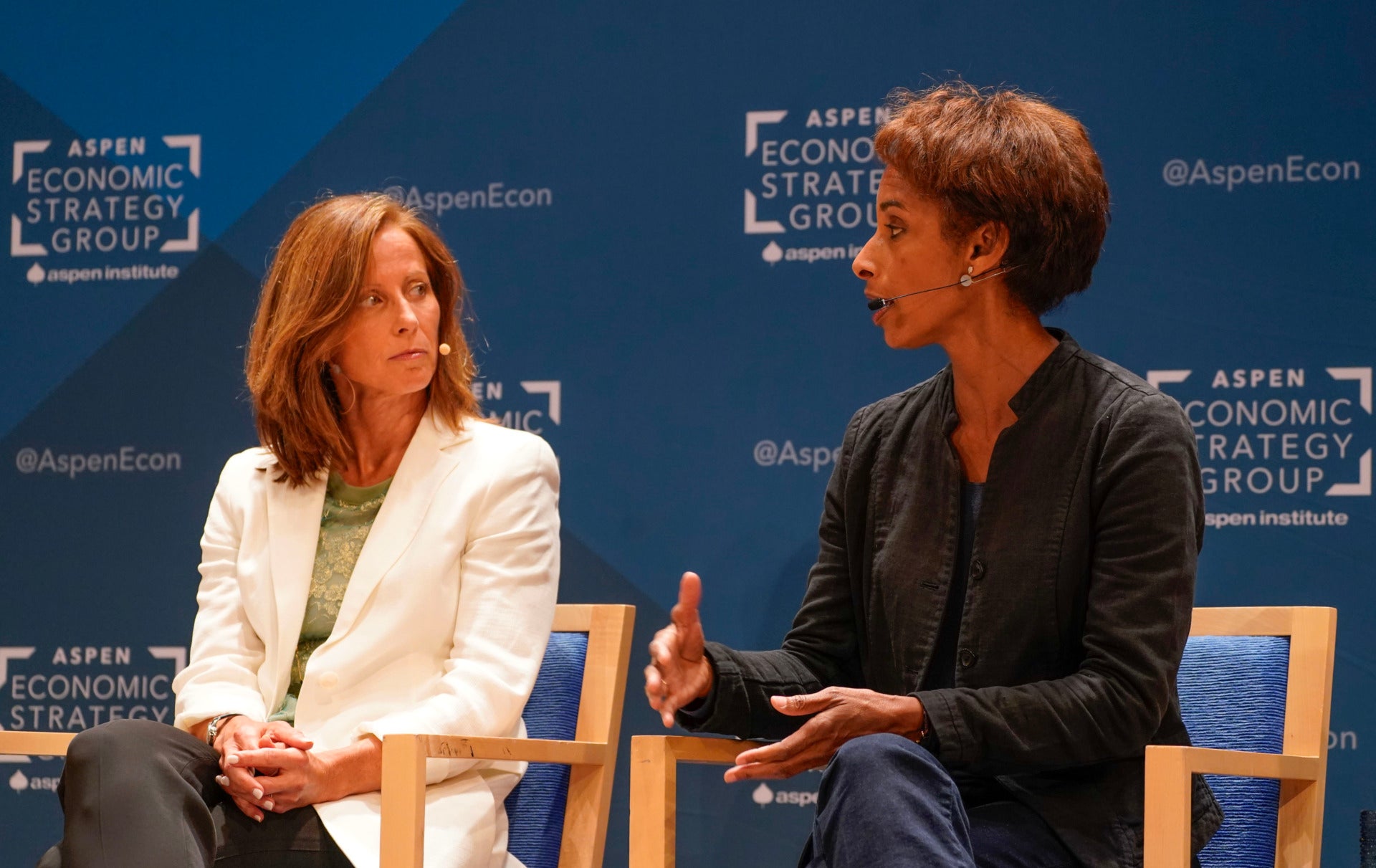For many Americans, payday can’t come soon enough. As of June, 61% of adults are living paycheck to paycheck, according to a LendingClub report. In other words, they rely on those regular paychecks to meet essential living expenses, with little to no money left over.
Almost three-quarters, 72%, of Americans say they aren’t financially secure given their current financial standing, and more than a quarter said they will likely never be financially secure, according to a survey by Bankrate.
“There are actually millions of people struggling,” said Ida Rademacher, Vice President at the Aspen Institute. “It’s not something that people want to talk about, but if you were in a place where your financial security feels super precarious, you’re not alone.”
This struggle is nothing new. Principal Financial Group found in 2010 that 75% of workers were concerned about their financial futures. What’s more, since 1979, wages from the bottom 90% of earners had grown just 15%, compared to 138% for the top 1%, according to a 2015 Economic Policy Institute report. But there’s now a renewed focus on wage-earner anxiety amid higher inflation and rising interest rates.
The typical worker takes home $3,308 per month after taxes and benefits, based on the latest data from the U.S. Bureau of Labor Statistics. But when you take a look at the cost of some of the most essential expenses today, it’s easy to see why consumers feel strained.
The median monthly rent in the U.S. was $2,029 as of June, according to Redfin. That amount already accounts for about 61% of the median take-home pay.
Meanwhile, the Council for Community and Economic Research reported that the median mortgage payment for a 2,400-square-foot house was $1,957 per month during the first quarter of 2023, which accounts for about 59% of the median take-home pay.
“Inflation is really hurting individuals having stability in their housing,” said certified financial planner Kamila Elliott, co-founder and CEO of Collective Wealth Partners in Atlanta. She is a member of CNBC’s Financial Advisory Council. “If you have uncertainty in your housing, it causes uncertainty everywhere.”
Combine that with the average $690.75 Americans spend each month on food and out-of-pocket health expenditures that cost the average American $96.42 monthly, and you get a total expense of $2,816.17 for renters and $2,744.17 for homeowners.
That amount already accounts for just over 85% of the median take-home pay for average American renters and almost 83% for an average homeowner. This is excluding other essential expenses such as transportation, childcare and debt payments.
“So much of managing your financial life in America today is like drinking from a firehose that many households are not able to show up and impose a framework of their own design into their finances,” said Rademacher. “Many are still in this reactionary space where they’re just trying to figure out how to make ends meet.”
This article was originally published on CNBC. Click here to read it and watch the accompanying video.

